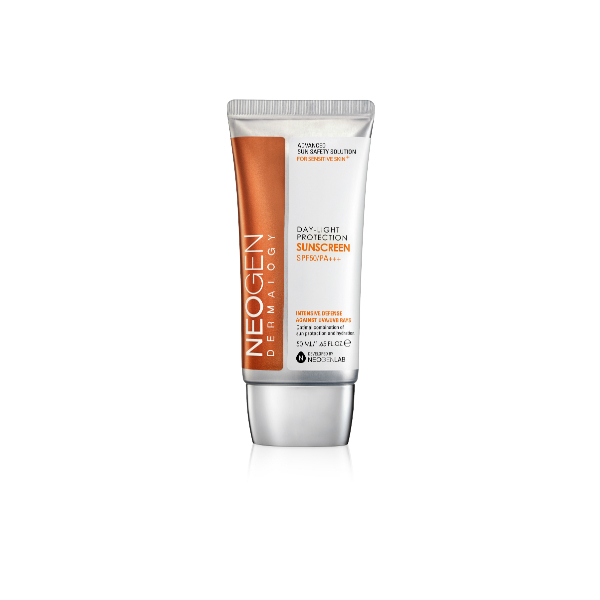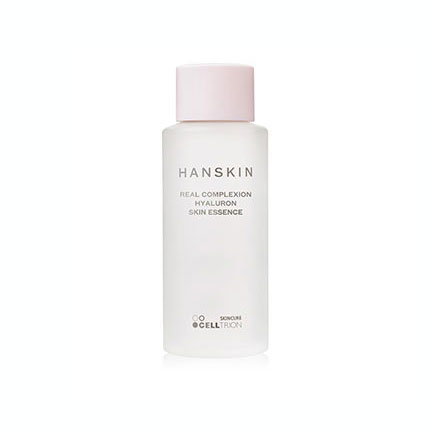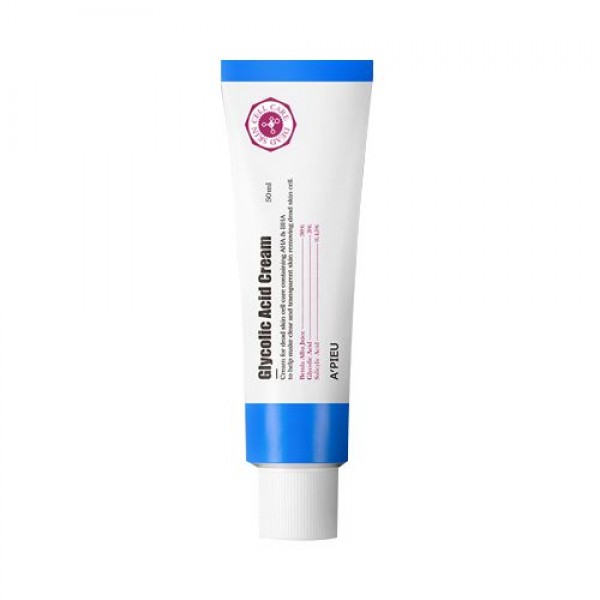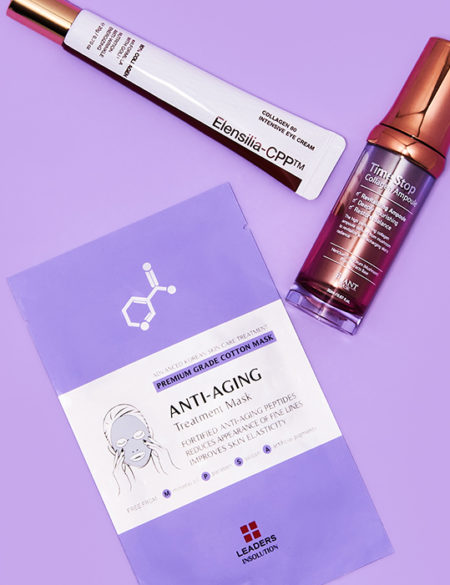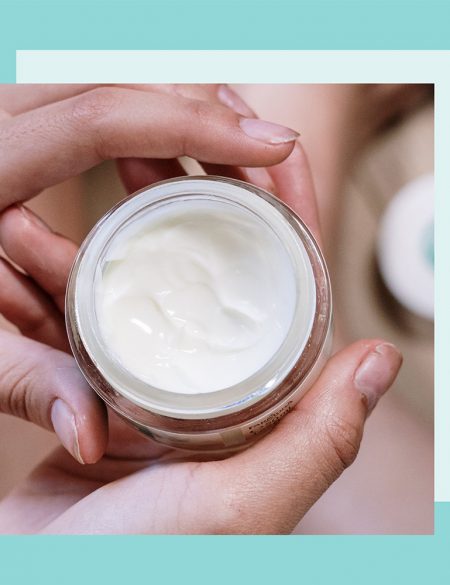When does skin start aging? What is normal when it comes to developing fine lines? We explore these topics.
The skin care community has a lot of discussions about “anti-aging” and “premature aging” and “preventative skin care.” In fact, we’d argue that a huge percentage of products, magazine articles, and skin care research are based upon these topics.
But here’s the question that we don’t ask enough: At what point are fine lines, age spots, and deep wrinkles completely normal for your age? And how, exactly, can you tell if your skin is aging more quickly than it actually should? For the answers to those questions, we consulted a dermatologist, immunologist, and a cosmetic chemist.
When Your Skin Naturally Begins Aging
“In general, I think people notice their first static wrinkles in their late 20s usually on their forehead or between the eyebrows. Everyone’s face will create wrinkles as we move our faces to show expression, but wrinkles visible when we aren’t making expressions are static wrinkles,” says Anna Karp, a double board-certified dermatologist. She adds, “People with darker skin tones tend to be more resistant to forming static wrinkles.”
David Pollock—who’s helped develop skin care products for some of the industry’s most well-known brands, including Smashbox, Lancome, and SkinCeuticals—agrees. He says that simple things like smiling a lot can cause wrinkling very early on, but your first true “aging wrinkle” will likely pop up in your late 20s or early 30s. From there on out, those wrinkles will increase in deepness and length, and you will begin to form new wrinkles, as well.
Regarding sun spots, Pollock says, “While age spots can appear in your 20s—especially for those who spend a lot of time in the sun—they are not as common until you get well in to your 30s and beyond.”
Beginning in your late 40s and moving forward, your skin will begin to develop deeper wrinkles and start to look and feel “crepey” (a thin, papery, wrinkled appearance). This is caused by a loss of collagen and elasticity, which is a natural part of getting older.
A proper skin care regimen can slow this aging process down, and it can even reverse some of these signs once they begin to occur. Conversely, a subpar skin care routine, excessive exposure to pollutants and the sun, smoking, drinking, and pervasive stress can exacerbate these signs of aging, causing them to happen earlier than they ought to.
Signs Your Skin is Aging More Quickly Than Normal
Now that you know what’s considered a normal aging timeline, here are a few signs that your skin is aging more quickly than it should.
Hyperpigmentation: “One of the signs of premature aging is the appearance of hyperpigmentation, sun spots or uneven pigmentation on the face in your early 20s due to environmental UV damage and persistent sun exposure,” says Ebru Karpuzoglu, an immunologist who founded her own natural skin care line.
To prevent and correct this issue, make sure to wear SPF 30+ every single day, and reduce extended exposure by wearing a hat, umbrella, or stepping into the shade. The Neogen Day-Light Protection Sun Screen SPF 50/PA+++ is a great sun protection option, that also offers a boost of hydration to your skin without leaving your skin with a white cast or feeling greasy. Pollock adds that serums with AHAs and vitamin C, and professional chemical peels, can also reduce hyperpigmentation.
Dehydrated & Dull: Karpuzoglu says that dehydrated, dry, dull looking skin that feels itchy or is easily irritated is the second most common visible sign of premature aging. “The dryness and loss of natural glow could be triggered by environmental factors, oxidative stress, not drinking enough water or poor skin nutrition,” she explains.
This goes to show how important those eight daily glasses are, and how vital a consistent and hydrating skin care routine is for your face. To keep your skin uber hydrated try ingredients like hyaluronic acid and saccharomyces ferment filtrate from products like the Hanskin Hyaluron Skin Essence and the Neogen Real Ferment Micro Essence.
Fine Lines & Wrinkles: If you’ve begun forming static fine lines in your early 20s or have very deep wrinkles in your late 20s and 30s, this is a sign that your skin is aging too quickly. These lines typically occur around your eyes, lips, and forehead, and are caused by a general loss of elasticity due to decreased collagen and elastin production. “These are usually due to lifestyle choices such as persistent facial mimicry like frowning or pursing of the lips, sleep deprivation and cigarette smoking, which can also increase the incidence of acne and allergic skin conditions,” says Karpuzoglu.
Glycolic acid, vitamin C, and advanced peptides can help correct these issues. The A’Pieu Glycolic Acid Cream and COSRX Triple C Lightning Liquid are packed with these “anti-aging” ingredients for correcting these premature signs of aging. Sunscreen, hydration, and consistent skin care can help delay them.
Increased Sensitivity: “Another sign of premature aging in your 20s and 30s is the sensitivity and inflammation due to air pollutants, free radical oxidation, UV radiation, lifestyle choices and daily stress,” says Karpuzoglu. “Prolonged stress in combination with sleep deprivation can negatively impact the immune system and increase production of aging oxidative radicals contributing to another visible sign of premature aging.” This includes discoloration, fatigued looking skin with dark circles around the eyes, or a leathery complexion. Make sure you’re nourishing and taking care of your body from the inside out, getting enough shut-eye, and addressing stressors that may be affecting your general health and happiness.
The Bottom Line
From the wise words of Pollock: It’s never too early to start taking care of your skin, and it’s never too late to start. “People take care of their bodies through diet and exercise, but often overlook their skin,” he says. “Your skin is an organ and needs taking care of, just like the rest of your body.”
Start a skin care regimen today, or challenge yourself to up your current skin care game, and stick to it from this day forth. Wash your face every morning and every evening. Pamper your face with quality serums, moisturizers, and creams, never fall asleep with your makeup on, and lather on SPF like your skin depends on it—because it does!



